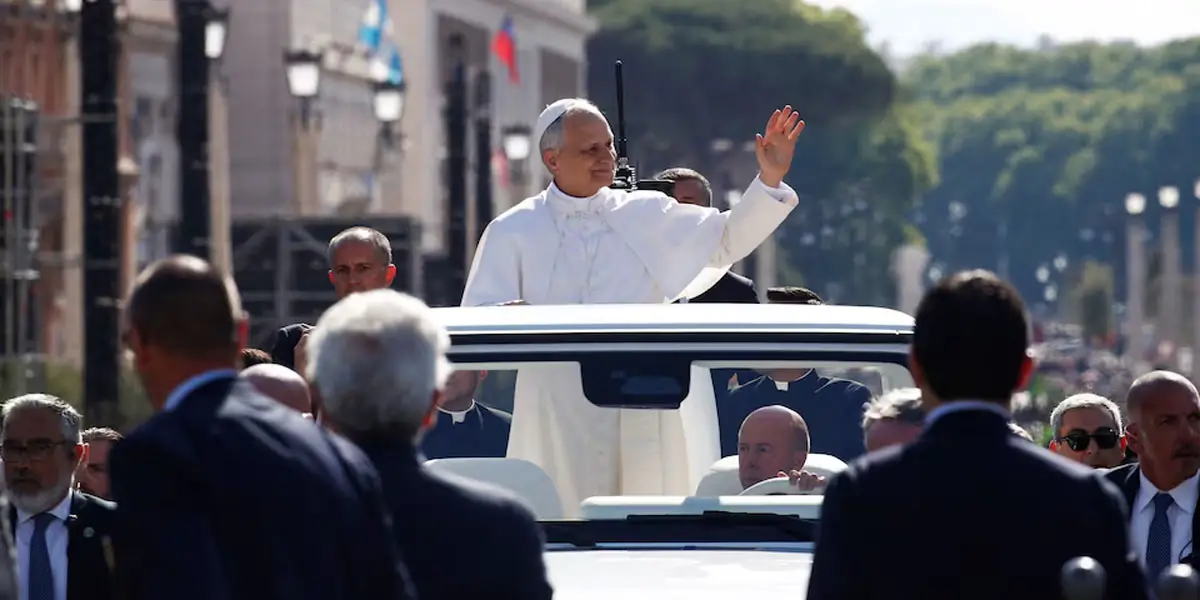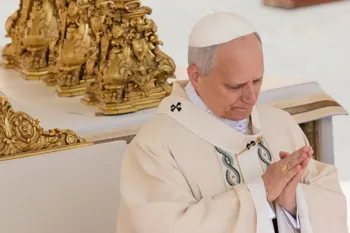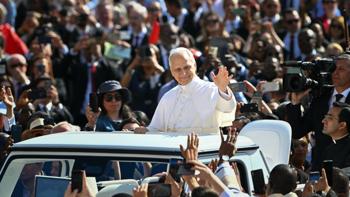First American Pope Leo XIV Calls for Unity and Justice in Historic Vatican Inaugural Mass
In a moment steeped in history and emotion, St. Peter’s Square transformed into a sea of humanity as Pope Leo XIV, the first American ever to lead the Roman Catholic Church, celebrated his inaugural Mass. A symbol of new beginnings and shifting tides within one of the world’s oldest religious institutions, the Mass marked a bold chapter in the Church’s long journey — one rooted in tradition yet clearly moving toward inclusivity, compassion, and social justice.
As sunlight streamed through the towering colonnades of the square, tens of thousands of faithful, pilgrims, and dignitaries gathered under a blue Roman sky to witness the historic event. Cheers erupted as the pontiff, dressed in flowing white vestments, made his entrance aboard the popemobile. Smiles and applause followed him as he waved to the crowd, blessing onlookers and even pausing to kiss a child, an intimate moment that underscored his pastoral warmth.
Over 100,000 people were estimated to have packed the square, many waving flags, holding rosaries, and chanting “Viva il Papa” as the pope made his way toward the altar. Leaders from over 150 countries were in attendance, reflecting the global significance of the occasion. Among them were high-ranking diplomats and heads of state, all gathered in silent anticipation of the words the new pope would speak.
When Pope Leo XIV rose to deliver his homily, the square fell into a reverent hush. In a tone both firm and fatherly, he offered a clear message of reform, unity, and moral clarity. He rejected the use of religion as a tool for power, urging Church leaders and followers alike to abandon division and embrace one another as members of one universal family. He directly addressed the growing chasm between conservatives and reformists in the Church, signaling a desire to heal long-standing rifts.
“There is no place in this Church for religious propaganda or ambition,” he said. “Only space for truth, service, and the joy of our shared faith.”
But it wasn’t only a spiritual message — Pope Leo also turned his gaze outward, condemning the exploitation of the poor and the destruction of the planet. His words challenged a global economic system that he said marginalizes the vulnerable while devouring Earth’s natural resources. It was a call not just to the faithful, but to world leaders to consider a path guided by conscience over profit.
Despite the weight of his message, Leo spoke with humility. “I was not chosen for this because of greatness,” he said, “but as a brother among you — one who now serves your faith and your joy.”
The ceremony continued with ancient rituals that symbolized the transfer of spiritual authority. Pope Leo received the pallium, a white woolen vestment symbolizing his role as shepherd to the flock, and the fisherman’s ring, which connects him to St. Peter, the first pope and humble fisherman. The ring, bearing the image of St. Peter and inscribed with “Leo XIV,” was slid onto his finger as a round of applause rang out. Visibly moved, the pontiff looked down at it in quiet reflection.
Scripture readings during the Mass focused on St. Peter and the Gospel of John — texts that affirm the pope’s mission as leader of the global Catholic community. While traditional papal coronations were once elaborate affairs complete with a tiara, modern popes have opted for more modest ceremonies. That shift mirrors Pope Leo’s tone — sacred, yet grounded in the real struggles of the people.
As the Mass drew to a close, the pope offered heartfelt prayers for those suffering around the world. He called for a “just and lasting peace” in Ukraine and remembered the victims of conflict in Gaza — especially the children, families, and elders suffering from hunger and displacement.
With this inaugural Mass, Pope Leo XIV not only took his place in the long line of pontiffs stretching back two millennia — he did so with a vision deeply connected to today’s most urgent human concerns. A new spiritual era has begun, one rooted in humility, compassion, and an unflinching demand for justice.





COMMENTS (0)
Sign in to join the conversation
LOGIN TO COMMENT